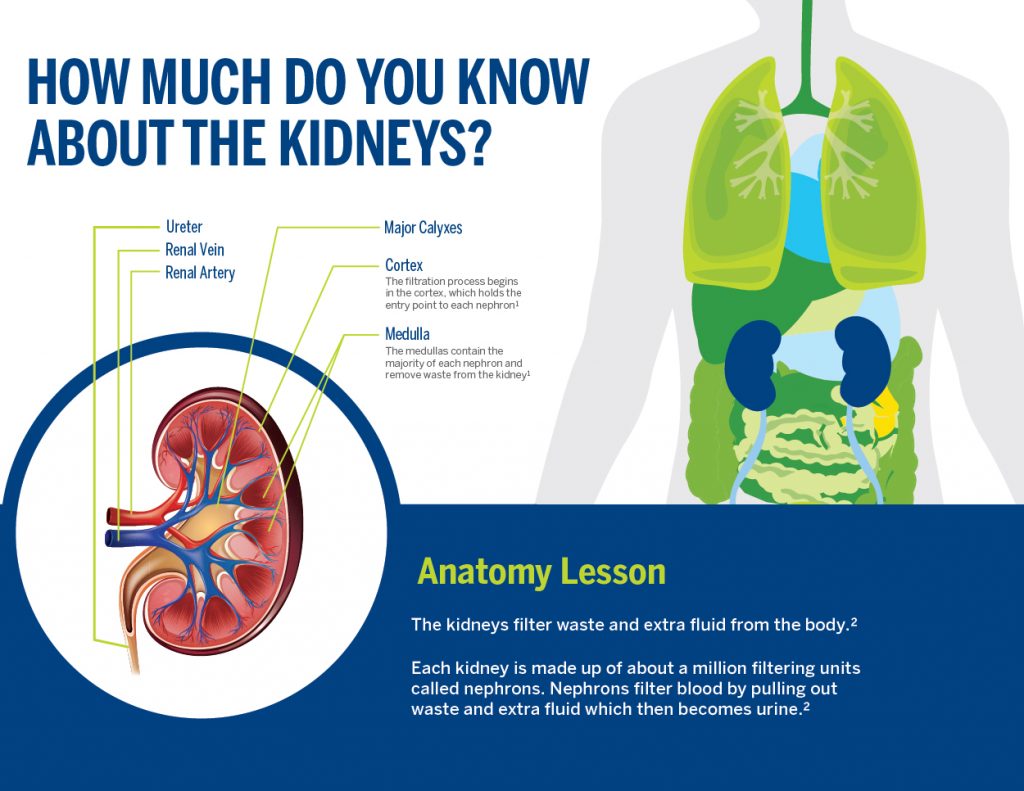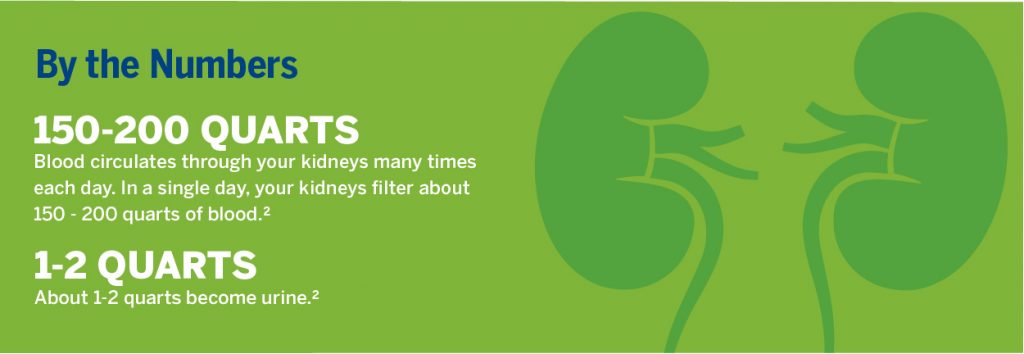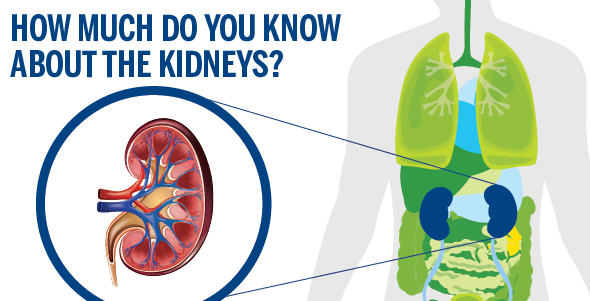By Toni Rodriguez | Associate Director of Global Medical Affairs at bioMérieux
The kidneys are best known for removing waste and extra fluid from the body. However, did you know they also serve as powerful chemical factories? Our kidneys play a vital role in keeping our body functioning, and it’s important to understand how they work in order to keep them healthy.

The Anatomy of the Kidney
The kidneys are two bean-shaped, fist-sized organs that are located just below the ribcage, one on each side of the spine. They are a part of the urinary system and make urine by removing waste and extra water from the body. In the kidneys, waste travels from the medullas, where it is created, all the way to the ureter. Ureters connect the kidneys to the bladder.
The kidneys remove waste and extra fluid from our body by filtering our blood. Each kidney is made up of about a million filtering units called nephrons. Nephrons filter our blood in a two-step process. First, a cluster of tiny blood vessels, known as the glomerulus, filter the blood by allowing smaller molecules, waste, and fluids to pass into the tubule. The tubule makes up the majority of the nephron and extends from the cortex down through the medulla. Blood vessels run alongside the tubule, reabsorbing needed substances such as minerals and nutrients. The remaining fluid and waste left in the tubule becomes urine.

Healthy kidneys filter about a half cup of blood every minute. This equates to about 150-200 quarts of blood each day. Blood enters our kidneys through the renal arteries. The large blood vessels then branch into smaller and smaller blood vessels until the blood reaches the nephrons. The kidneys produce about one to two quarts of urine each day.
The Kidneys’ Job
Our kidneys’ job is crucial. Without the proper levels of acid and nutrients in our blood, our nerves, muscles, and other tissues in our bodies may not work properly. One of the things our kidneys do is remove acid from our blood, which maintains our bodies’ pH levels. Our cells naturally produce acid, and the foods we eat can either increase or lower the amount of acid in our bodies. The kidneys also work to control the balance of water, salts, and minerals in our blood.

Our kidneys are chemical factories. Through the production of the hormone erythropoietin, our kidneys tell our bone marrow to make red blood cells. By monitoring fluid levels and creating a hormone that constricts our blood vessels, they also manage blood pressure. They also make an active form of vitamin D, which allows our bodies to absorb calcium and phosphorus.
Kidney Damage
Our kidneys can become damaged for a number of reasons, and when they do, injury can be acute or chronic. Acute kidney injury is a sudden episode of kidney damage that is often seen in patients who are in intensive care units. Chronic kidney disease is slowly progressing kidney damage. You’re more likely to develop chronic kidney disease if you have diabetes, high blood pressure, or a family history of kidney failure.
Kidney health is important. When the kidneys don’t work well, the build-up of waste and extra water in the body can cause health problems. The Centers for Disease Control and Prevention estimate that about 15% of the U.S. adults have chronic kidney disease. The best way to protect our kidneys is by preventing or managing health conditions that cause kidney damage.
National Kidney Month
There’s no doubt that our kidneys play a critical role in our overall health and well-being. March is national kidney month, so help spread the word about how our kidneys work and why it’s important to keep them healthy. You can learn more about National Kidney Month 2020 from the National Institute of Diabetes and Digestive and Kidney Diseases.
Download the Full Kidney Facts Infographic
Opinions expressed in this article are not necessarily those of bioMérieux, Inc.




I’m stage 3 kidney disease would like to join a support group
If you already have stage3 renal disease, what can I do to improve their function?
I have high blood pressure, take medication for cholesterol and have stents in the groin area.
What is the best food for stage 3 kidney disease ? Just received kidney transplant March last year. Can transplanted kidney perform as a normal kidney ? My GFR 30-59mm/min. My creatinine is always 1. 05 to 1.07 sometimes lower. What can I do. Or what should be the normal readings please help me. Am drinking 1 litler Per day.